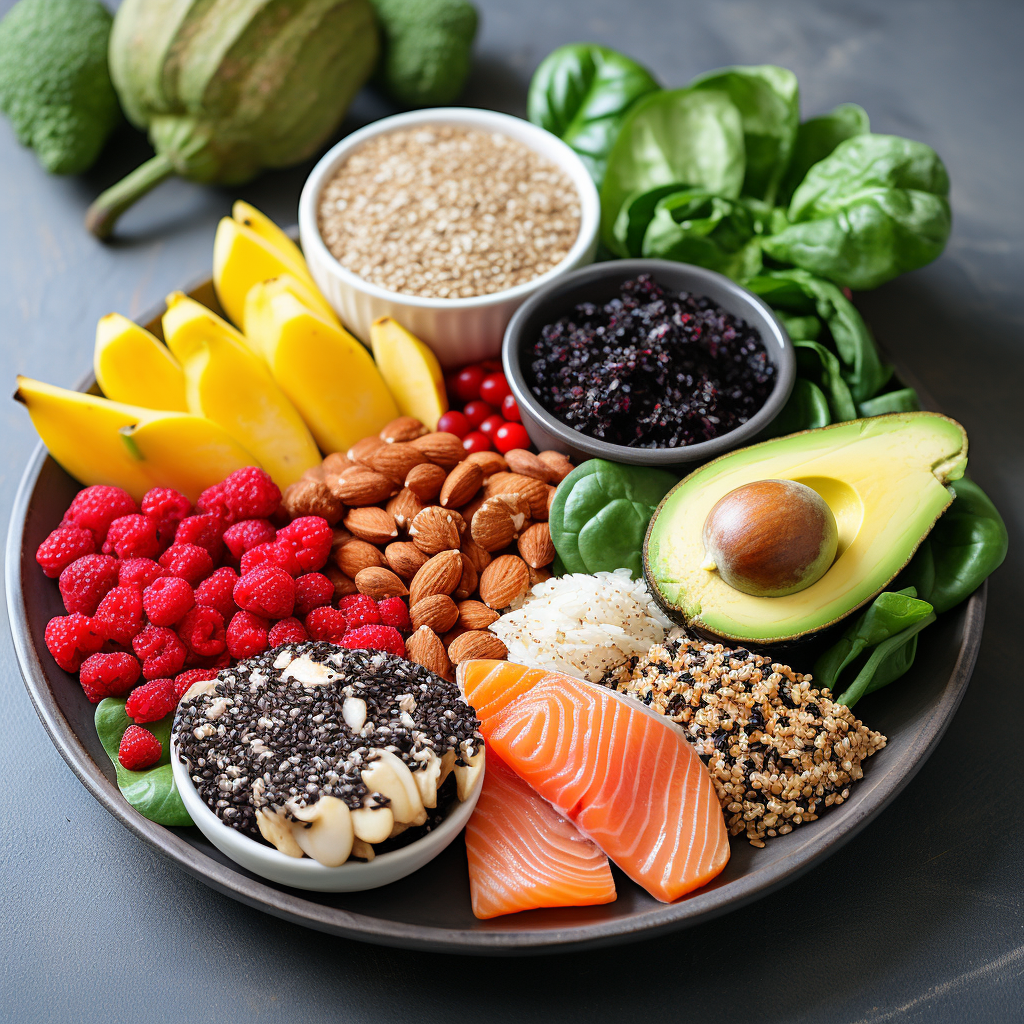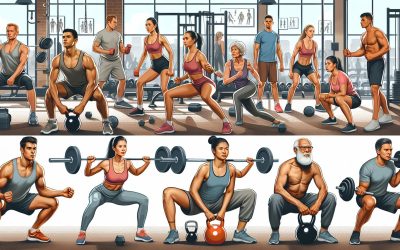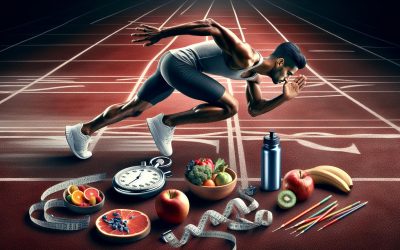Refueling your body after a workout is crucial for muscle repair, replenishment of energy stores, and overall recovery. The right post-workout nutrition can help reduce muscle soreness, rebuild muscle tissues, and ensure you have the energy for your next workout session. The goal is to consume a combination of protein, to aid in muscle repair, and carbohydrates, to replenish the energy that was used during your workout.
Protein is essential as it provides the amino acids needed for the repair and growth of muscle fibers. Carbohydrates are important because they refill glycogen stores that have been depleted during exercise. Ignoring post-workout nutrition can delay recovery, decrease muscle synthesis, and even lead to fatigue and potential injury. Therefore, it’s important to eat a balanced meal with both macronutrients soon after a workout.
Join Our Community Today and receive exclusive tips and updates that will help you understand the nuances of post-workout nutrition. Ready to kickstart your wellness journey? Sign up for our content now!
The Role of Macronutrients in Recovery and Growth

Macronutrients—carbohydrates, proteins, and fats—each play a specific role in post-workout recovery and growth. Proteins are the building blocks of muscle repair and growth. After intense training, muscles are damaged at a microlevel, and proteins help to rebuild these fibers stronger than before. It is widely accepted that consuming protein after a workout can enhance muscle protein synthesis and promote recovery.
Carbohydrates are equally vital as they restore muscle glycogen, which is the primary fuel source used during moderate to high-intensity exercise. Consuming carbs post-exercise ensures that you have adequate energy stores for future workouts. Fats, while not as critical immediately post-workout, still play an important role in overall health and can aid in absorption of fat-soluble vitamins and provide a longer-term energy source.
It’s not just about the individual macronutrients, but also the timing and the ratio in which they are consumed. A common recommendation is to aim for a ratio of approximately 3:1 or 4:1 carbohydrates to protein. This blend helps maximize glycogen synthesis and muscle recovery. However, individual needs can vary based on the intensity and duration of the exercise, as well as personal fitness goals.
Tailoring Your Post-Exercise Meal Timing
The timing of your post-exercise meal can significantly impact your recovery and muscle growth. A concept known as the ‘anabolic window’ suggests that there is a limited time after training, typically cited as 30 to 45 minutes, during which your body is exceptionally receptive to nutrients. During this period, muscle synthesis can occur at a faster rate, and your body can replenish energy stores more efficiently when provided with the right nutrients.
However, recent research indicates that this window may be wider than previously thought, and that pre-exercise nutrition also plays a role. If you’ve consumed a meal containing adequate protein and carbohydrates before your workout, the urgency for post-workout nutrition diminishes, as the nutrients from the pre-workout meal are still being digested and utilized.
For those who train fasted or have not eaten for several hours before exercise, it is more crucial to consume a post-workout meal soon after training. This meal should include both protein and carbohydrates to aid in recovery and muscle replenishment. Conversely, if you had a meal shortly before exercising, you might have a bit more flexibility with your post-workout nutrition timing.
Ultimately, listening to your body and understanding its signals is key. Some individuals may feel famished and benefit from eating right after exercising, while others may not feel the need to eat immediately. Tailoring your post-exercise meal timing to your individual circumstances can help optimize recovery and contribute to better performance in the long run.
Hydration and Electrolyte Replenishment After Exercise

Hydration is an integral part of post-workout recovery, yet it is often overlooked. Replenishing fluids after exercise is crucial, as sweat loss during physical activity leads to dehydration if not adequately addressed. The amount of fluid needed can vary widely based on the intensity of the workout, the environment (hot or humid conditions), and individual sweat rates.
To adequately rehydrate, it’s essential to consume water after a workout. However, water alone may not suffice, especially after prolonged or intense sessions. This is where electrolytes come into play. Electrolytes, such as sodium, potassium, calcium, and magnesium, are vital for maintaining fluid balance, muscle contractions, and nerve function.
After exercise, replenishing these electrolytes is just as important as ingesting fluids. Natural sources like bananas for potassium, dairy products for calcium, nuts and seeds for magnesium, and a pinch of salt added to your meal or snack can help restore electrolyte levels. For those engaged in extended exercise exceeding an hour, especially in hot climates, an electrolyte-replacement beverage may be beneficial to aid in quicker recovery of electrolyte balance.
Monitoring urine color can be a practical approach to gauge hydration status. A light, straw-colored urine typically indicates proper hydration, while a dark color suggests the need for more fluids. Maintaining hydration and electrolyte balance after a workout not only supports immediate recovery but also prepares your body for the next round of physical activity, ensuring you’re well-equipped to perform at your best.
Post-Workout Meal Ideas for Different Dietary Preferences

After understanding the importance of what to eat after a workout, it’s helpful to have meal ideas that cater to various dietary preferences. Whether you’re following a plant-based diet, a high-protein regimen, or a gluten-free lifestyle, there are nutritious options to optimize your recovery.
For those on a plant-based diet, combining legumes with grains can provide a complete protein profile. A quinoa and black bean salad, for instance, is not only protein-rich but also offers a good mix of carbohydrates and fiber. Tofu or tempeh stir-fries with an abundance of vegetables over brown rice can also serve as an excellent post-workout meal.
High-protein dieters might opt for grilled chicken or salmon with sweet potatoes and steamed broccoli. These components offer a balanced mix of protein, carbs, and micronutrients. Greek yogurt with nuts and berries can be a perfect post-workout snack, providing protein along with antioxidants and healthy fats.
For those following a gluten-free diet, a rice bowl with lean beef, mixed vegetables, and a sprinkle of cheese can be both satisfying and nourishing. Alternatively, a smoothie made with gluten-free oats, protein powder, a banana, and a handful of spinach provides an easy, digestible way to refuel.
Remember, it’s not just about the macronutrients; including a variety of fruits and vegetables in your post-workout meals can deliver essential vitamins and antioxidants to aid in recovery. Tailoring your post-exercise meal to fit your dietary needs ensures that you can refuel effectively, no matter your eating preferences.
Supplements vs Whole Foods in Post-Workout Recovery

When considering the debate between supplements and whole foods for post-workout recovery, it’s vital to weigh the pros and cons of each option. Supplements, such as protein powders or BCAA concoctions, offer convenience and rapid absorption, which can be particularly appealing after an intense gym session. They can help to quickly repair and build muscle tissue, especially when time is of the essence.
However, whole foods provide a spectrum of nutrients that work synergistically to enhance recovery. Foods like eggs, lean meats, quinoa, and fresh produce not only supply the protein needed for muscle repair but also provide vitamins, minerals, and other compounds that contribute to overall health. Whole foods also offer dietary fiber, which supports digestive health—an aspect not to be overlooked when considering overall well-being.
It’s also important to consider that while supplements can fill in the gaps of a diet, they should not be the sole source of post-workout nutrition. A balanced meal after exercise can lead to better long-term health outcomes and is a cornerstone of a holistic approach to wellness.
In conclusion, while there’s a place for supplements in a fitness regimen, they are best used in conjunction with a diet rich in whole foods. By understanding the value each brings to the table, you can make informed decisions that align with your health goals and dietary preferences.
Ready to kickstart your wellness journey? Sign up for our content to receive exclusive tips and updates. Take the first step towards a healthier, happier you! Join Our Community Today.
Elizabeth Redd: I am a passionate advocate for Health and Healing, dedicated to empowering individuals to live their best lives.
As the founder and publisher of Health and Healing, I have established myself as a guiding force in the wellness industry.
I am committed to providing the latest research, holistic approaches, and inspiring stories to open new possibilities for your health and healing journey.
Learn more about Elizabeth and Join Us at Health and Healing. Also, check out My About Page.






0 Comments